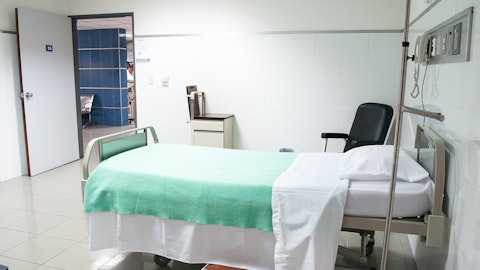Mike Simonds: Yes, thanks for the question, it’s Mike. And so it’s pretty broad-based for us. And we talked a little bit about the capabilities. We are definitely seeing for the Unum brand in the mid and large employer markets, the need for a really strong both leave and administrative solutions. So again, our total leave platform, we had set them pretty big goals for this year as our first year in a national rollout phase, and we significantly exceeded those goals. And as a reminder, we offer leave only in combination with insured products, when you see the really strong short-term and long-term disability growth, for instance, a good amount of that in the mid and large cases coming through on a packaged basis, a good amount is coming on those platforms that I referenced earlier.
In the smaller end of the market, we look to provide an administratively easy bundle for the small employers. So the strength of the dental offering, which is a really important benefit, particularly in that small employer market and our Unum administrative platform that has really started to take off. And so as we have success in dental, that’s pulling other lines with us as well. And then in the self-involved category, good continued strength in our individual disability business that is often a buy-up to the group long-term disability. So again, as we have a really strong, I would argue, the premier disability and leave franchise in the industry, that’s very often bringing buy-up opportunities for that very steady and profitable individual disability business.
I think as you look forward, it’s taking a little bit longer, but as our voluntary lines like Tim talked about under both the Unum and Colonial Life brands, we’re seeing really strong underlying strength in the distribution of pipeline. And so that bodes well as we sort of think, again, about 2023 sales growth and then again getting back into a top line 4% to 7% range over the next couple of years.
Unidentified Analyst: That’s great. Thank you.
Rick McKenney: Thank you, Marley.
Operator: Thank you. The next question today comes from the line of Mike Ward from Citi. Please go ahead, your line is now open.
Mike Ward: Thank you, guys. Good morning. Maybe just a quick clarification, Rick. So no change to the $200 million run rate for buybacks into 2023?
Rick McKenney: Yes, we’ll talk about that at our upcoming meeting. I think we were looking backwards more talking about the $200 million we’ve done over the last 18 months or so, at least on pace for that. So, I feel good about that. We’ll talk about different types of flexibility we have going into 2023 at our outlook meeting here in a few weeks.
Mike Ward: Awesome, thanks. And then maybe just curious about the commentary around credit. I’m wondering if you guys could expand on the commentary for net neutral rating activity in the investment portfolio.
Steve Zabel: Yes, Mike, this is Steve. I can take that one. Just stepping back a little bit, and we haven’t really talked about recessionary pressures specifically, but we do a lot of work around our credit just around sensitivity testing, scenario planning. And as we look forward and we think about kind of a moderate recessionary scenario of GDP down low single digits, and we run that through our portfolio, we feel really good about the fact that we don’t see any material impairments within the portfolio. We do think that for the positions we have, the net neutral is a pretty good planning estimate for us. But clearly, we have a lot of capital flexibility to manage in most scenarios. The other thing that I’d say is we have over the pandemic, I had in my remarks, we’ve reduced our high-yield portfolio quite a bit during the pandemic.





